Ivory Coast
Legislative elections scheduled to take place this Saturday in Cote d’Ivoire are abuzz with talks of former president Laurent Gbagbo — who was forced out of office nearly 10 years ago by President Alassane Ouattara, before being flown to The Hague to face war crimes charges.
His Ivorian Popular Front (FPI) party has since ended a years-long electoral boycott, becoming the engine behind an alliance battling for seats in the National Assembly.
The elections "mark the return of Laurent Gbagbo and his political organisation in institutional politics," said Gbagbo's eldest son, Michel, a university academic running in a constituency in Abidjan.
Michel Gbagbo, who is also a candidate in legislative elections, feels empowered, "Let's go to the elections and take back the power to give it back to whoever has the right to it in Ivory Coast. Go vote."
Ouattara ignited political unrest last year when he announced he would seek a third term in office — a scheme that critics said sidestepped constitutional limits.
Clashes claimed 87 lives and left nearly 500 people injured, while most of the opposition snubbed the October 31 ballot.
His victory lacked credibility in the eyes of many observers both at home and abroad and incited resistance.
Ruling party still in the running
Gilbert Kafana Koné, legislative candidate of the Rally of Houphouëtists for Democracy and Peace Party (RHDP) is unphased and resolute.
"This election is an opportunity to take stock. They all came to power here (Yopougon), we saw what they left. We also saw what we have done in 10 years. That's the balance sheet. But if they continue to believe that time has remained fixed, that things haven't changed, well, we're waiting for them, they'll have for their illusions on the evening of the 6th."
The runup to Saturday's vote has seen a jolt run through Ivorian politics as the well-organised FPI strives to get out the vote.
The left-leaning coalition has forged an unprecedented electoral deal with the biggest centre-right party — the Democratic Party of the Ivory Coast (PDCI) headed by Henri Konan Bedie, a former president and former Ouattara ally.
The self-described goal is to win enough legislative seats to prevent Ouattara and his RHDP party from "consolidating (their) absolute power."
Background
Ouattara had reached out to Gbagbo to quell the electoral chaos — issuing him with a diplomatic passport. Exactly when he will make his return is unclear.
The International Criminal Court (ICC) has authorised him to make foreign trips if the host country accepts him, pending the outcome of the appeal, which is due by March 31.
He previously said he hoped to return in December, but his increasingly frustrated supporters now say it will be in mid-March and have set up a committee to prepare a spectacular welcome.
Gbagbo was president from 2000 to 2010, a time of turmoil, division and economic destruction in this major cocoa and coffee producer.
He was ousted by force of arms in April 2011 after a months-long conflict that claimed several thousand lives, sparked by his refusal to accept electoral defeat at Ouattara's hands.
His long trial at the ICC in The Hague was over charges that he abetted the post-electoral violence.




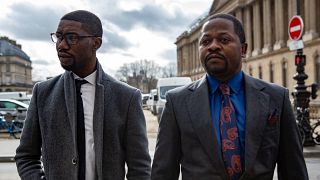
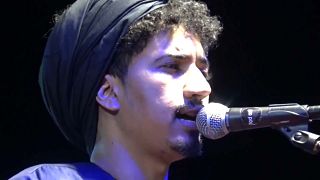
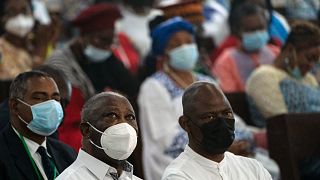
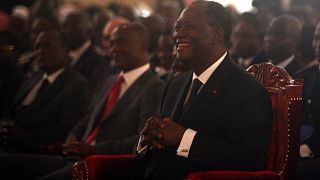
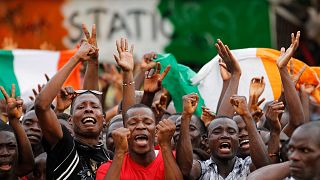



00:48
Cyril Ramaphosa arrives in Canada for G7 summit
01:07
Burundi’s ruling party wins all parliamentary seats amid fraud claims
Go to video
Burundians vote to elect lawmakers and local leaders
01:00
Ivory Coast: opposition candidates barred from electoral lists
01:06
Nigeria scraps controversial bill making voting mandatory
01:02
Tidjane Thiam Confirmed as PDCI President by Ivorian Court